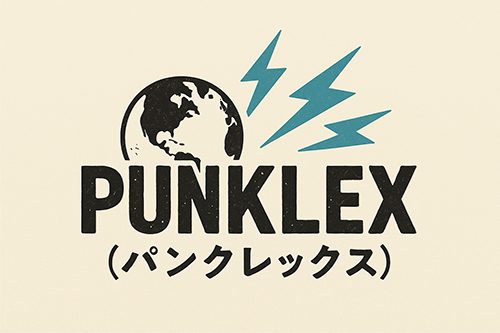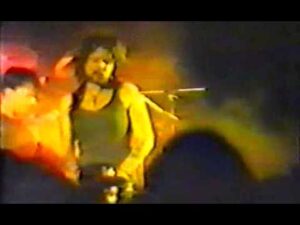Formation & Members
Die Krupps, a pioneering band in the realm of industrial and electronic music, was formed in 1980 in Düsseldorf, Germany. The band’s name, derived from the infamous German steel dynasty, hints at their industrial roots. Die Krupps was founded by Jürgen Engler, a visionary musician with a penchant for blending aggressive electronic sounds with punk sensibilities. Alongside Engler, the original lineup featured Ralf Dörper, who brought a unique perspective with his experience in the synth-pop band Propaganda. Over the years, the lineup has seen several changes, with key members including Rüdiger Esch and Marcel Zürcher, who have significantly contributed to the band’s evolving sound.
Musical Style & Characteristics
Die Krupps is renowned for its innovative fusion of electronic and industrial music with punk and heavy metal elements. Their early work was heavily influenced by the burgeoning electronic scene of the late 1970s and early 1980s, characterized by minimalistic beats and synthesized sounds. However, as the band evolved, they began incorporating heavier guitar riffs, aligning themselves more with the industrial metal movement of the 1990s. This blend of electronic and metal elements set them apart, creating a sound that was both futuristic and grounded in raw, aggressive energy. Their music often features themes of technological advancement, societal critique, and human resilience, making it both thought-provoking and intensely engaging.
Key Works & Discography
The discography of Die Krupps is extensive and showcases their evolution over the decades. Their debut album, “Stahlwerksinfonie,” released in 1981, was a groundbreaking work that laid the foundation for their industrial sound. The album’s title, translating to “Steelworks Symphony,” reflects its mechanical and rhythmic nature. In 1992, they released “I,” an album that marked a significant shift towards industrial metal, characterized by its heavy guitar work and electronic beats. Songs like “Metal Machine Music” became anthems of the industrial scene.
Another pivotal album, “II – The Final Option,” released in 1993, further solidified their place in industrial music, featuring tracks that were both hard-hitting and lyrically profound. Their collaboration with Nitzer Ebb on the song “The Machineries of Joy” is another highlight of their career, blending the strengths of both bands.
Their later works, such as “The Machinists of Joy” (2013) and “Vision 2020 Vision” (2019), demonstrate their ability to adapt and remain relevant in a rapidly changing musical landscape. Each album not only pays homage to their industrial roots but also explores new sonic territories.
Influence on Other Bands/Scenes
Die Krupps has been a significant influence on both the industrial and metal scenes. Their early work laid the groundwork for many bands that followed, particularly in the realm of industrial metal. Bands like Rammstein and KMFDM have cited Die Krupps as a major influence, particularly in how they blend electronic and metal elements. Their pioneering approach to music production and their willingness to experiment with different sounds have inspired countless artists to push the boundaries of genre conventions.
Beyond their direct influence on other bands, Die Krupps has also played a crucial role in popularizing the industrial genre in Europe and beyond. Their music has been a staple in clubs and underground scenes, where its high energy and provocative themes resonate with audiences.
Breakups or Reunions
Die Krupps has experienced its share of hiatuses and reunions. In the late 1990s, after a decade of producing highly influential music, the band went on a hiatus. This break allowed its members to explore other projects and musical endeavors. However, the hiatus did not mark the end of Die Krupps. In 2005, they reunited, much to the delight of their fans, and began performing live again. This resurgence marked a new chapter for the band, leading to the release of new music and renewed creative energy.
Their ability to regroup and continue creating music after such breaks is a testament to their enduring passion for their craft and the strong bond among the band members.
Current Reputation & Legacy
Today, Die Krupps is regarded as one of the seminal bands in the industrial genre. Their legacy is built on a foundation of innovation, rebellion, and a refusal to be confined by traditional genre boundaries. They are celebrated not only for their contributions to music but also for their influence on the culture of industrial and electronic music scenes worldwide.
Their live performances continue to captivate audiences, characterized by high energy, meticulously crafted soundscapes, and a commanding stage presence. Fans old and new are drawn to their music, which remains as relevant and powerful today as it was in their early years.
Die Krupps’ influence extends beyond music into the broader cultural sphere, where they are seen as pioneers who challenged the status quo and inspired generations of musicians to do the same.
Conclusion
In the grand tapestry of industrial and electronic music, Die Krupps stands out as a beacon of innovation and resilience. From their formation in 1980 to their current status as legends in their genre, they have continually pushed the boundaries of what music can be. With a discography that spans decades and a legacy that influences musicians across the globe, Die Krupps remains a vital and enduring force in the music world. As they continue to perform and create, their impact on the industry is sure to resonate for many more years to come.









